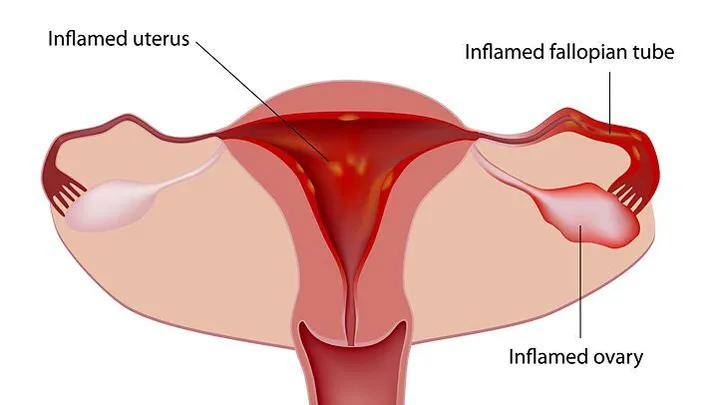
Vagina Burning After Sex: What You Need to Know
What Is Vaginal Burning?
Vaginal burning after sex is a common yet uncomfortable sensation that many women experience. It can feel like stinging, irritation, or rawness in or around the vaginal area following intercourse. While it’s often temporary, recurring or intense vaginal pain after sex may signal an underlying issue.
This burning sensation after intercourse can be caused by anything from mild friction to infections or even allergic reactions. Understanding what triggers this discomfort is the first step toward effective relief and prevention.
Why It’s Important to Talk About Post-Sex Discomfort
Many people suffer in silence when it comes to vaginal discomfort post intercourse, often out of embarrassment or the assumption that it’s “normal.” However, talking openly about burning in vagina after sex is vital. It is not just for personal comfort, but also for sexual health.
Discomfort after sex isn’t something anyone should simply tolerate. Persistent pain or burning can be your body’s way of saying something is wrong. It may be caused by vaginal dryness and pain, an infection, or a reaction to a product. As researchers from Mayo Clinic explain, dyspareunia (painful sex) can have physical, hormonal, or psychological causes that deserve attention and care.
When to Worry and Seek Medical Help
While some irritation after sex can be normal, especially if it’s your first time or after prolonged activity, it’s important to know when to speak to a doctor. You should seek medical advice if you experience:
-
Persistent or worsening burning sensation
-
Pain during or after sex that lasts more than 24 hours
-
Visible swelling, discharge, or sores
-
A burning sensation and menopause related to dryness
-
Signs of STIs that cause vaginal burning, like chlamydia or herpes
According to Cleveland Clinic, vaginal burning that recurs frequently may indicate infection, skin sensitivity, or hormone-related changes. These should not be ignored, especially if accompanied by abnormal symptoms.
Understanding Vaginal Burning After Sex
Is It Normal to Feel Burning Sometimes?
Occasional post-coital burning sensation may happen if there was not enough lubrication, or if there was prolonged or rough sex. A mild, short-lived burn can occur due to increased friction or sensitivity. This is especially true during hormonal shifts, such as breastfeeding or perimenopause.
However, just because it’s common does not mean it should be accepted without question. Frequent burning from friction during sex or unexplained discomfort may point to an underlying condition.
Temporary vs. Persistent Burning Sensation
Temporary burning usually resolves within a few minutes to an hour and can be relieved by rinsing with cool water, urinating after sex, or using a pH-balanced wash. But persistent burning, especially when it recurs after every sexual encounter, is not normal and may stem from:
-
Allergic reaction to condoms or lubricants
-
Yeast infection after sex
-
Hormonal imbalance or vaginal atrophy
-
Bacterial vaginosis or UTIs
These conditions often require targeted treatment and should be discussed with a healthcare provider.
How Long Should Discomfort Last?
Typically, any vaginal burning after sex that is mild and harmless should go away within a few hours. If the burning continues beyond a day, worsens, or is accompanied by pain, odor, or discharge, it is best to schedule an appointment with a gynecologist.
Chronic or severe pain and burning after intimacy could be a sign of infections or inflammation that need medical management. Timely diagnosis helps prevent complications and restores comfort and confidence in your sex life.
Common Causes of Vaginal Burning After Sex

Burning or discomfort after intimacy can feel confusing or alarming, especially when it happens more than once. While occasional irritation may be harmless, persistent or recurring vaginal pain after sex could point to a deeper issue. Let’s explore the most common causes of vagina burning after sex and what you can do about them.
1. Lack of Lubrication
Vaginal dryness and pain are among the most frequent reasons for a burning sensation after intercourse. Without enough moisture, friction increases during penetration, leading to microscopic tears in the delicate vaginal tissue.
Causes of Vaginal Dryness
-
Hormonal changes during breastfeeding, menopause, or after childbirth
-
Medications such as antihistamines, antidepressants, and birth control pills
-
Emotional stress or anxiety, which can affect arousal
According to Johns Hopkins Medicine, estrogen deficiency is a primary cause of vaginal dryness in menopausal and postpartum women.
Why Dryness Can Cause Friction and Burning
When the vaginal walls aren’t properly lubricated, sex can cause painful friction. This can result in burning from friction during sex, redness, or even small cuts in the tissue, which may feel like stinging afterward.
Solutions: Natural vs. Commercial Lubricants
-
Natural remedies: Coconut oil, aloe vera (if pH balanced), and drinking more water
-
Commercial options: Use water-based or silicone-based lubricants that are fragrance-free and pH-balanced
Avoid products with glycerin or parabens, which can increase the risk of irritation or yeast infections.
2. Rough or Prolonged Intercourse
Sometimes, the issue isn’t dryness but too much intensity or duration. Rough sex or extended penetration can cause micro-tears in the vaginal tissue, leading to soreness, rawness, and a burning in vagina after sex that lasts for hours.
How Aggressive Sex Can Lead to Irritation
Repeated thrusting or inadequate foreplay increases the likelihood of inflammation. Without proper arousal, the vaginal canal doesn’t elongate or lubricate naturally, leading to painful impact and stretching.
Tips for Preventing Trauma
-
Spend more time on foreplay
-
Use a generous amount of lubricant
-
Communicate openly with your partner about pace and comfort
-
Change positions if any pain or pressure arises
If pain persists after gentle intercourse, consult your doctor to rule out underlying causes.
3. Allergic Reactions or Sensitivities
A burning sensation after sex may also result from an allergic or irritant reaction to products used during intercourse.
Common Triggers Include:
-
Condoms: Latex allergies or reaction to spermicide-lubricated condoms
-
Lubricants: Artificial colors, flavors, or parabens
-
Hygiene products: Scented wipes, douches, or feminine washes
According to American College of Allergy, Asthma & Immunology, latex allergies can cause itching, swelling, and a painful burning feeling in sensitive areas.
Symptoms of Allergic vs. Irritant Reactions
-
Allergic: Itching, redness, swelling, and persistent burning
-
Irritant: Mild discomfort or stinging that improves after washing
Try switching to non-latex condoms and unscented, hypoallergenic products to minimize irritation.
4. Infections
Infections are a major cause of pain during or after sex, especially when burning is combined with other symptoms like discharge or odor.
Yeast Infections (Candidiasis)
Yeast overgrowth can make the vaginal walls inflamed and sensitive. Friction during sex worsens the irritation, often causing a sharp burning sensation after intercourse.
-
Symptoms: Thick white discharge, itching, redness
-
Triggers: Antibiotics, hormonal shifts, high sugar diets
More at CDC – Yeast Infection
Bacterial Vaginosis (BV)
BV is caused by an imbalance in vaginal bacteria. It’s not classified as an STI, but sex can trigger or worsen it.
-
Symptoms: Thin grayish discharge, fishy smell, mild burning
-
Role of sex: Unprotected sex or new partners may disrupt natural flora
More at Mayo Clinic – Bacterial Vaginosis
Urinary Tract Infection (UTI)
Sex can push bacteria toward the urethra, causing UTIs. While UTIs mostly affect urination, some women experience burning during or after sex too.
-
Symptoms: Frequent urination, burning with urination, pelvic pressure
-
Prevention: Urinate after sex, wipe front to back, stay hydrated
More at Cleveland Clinic – UTIs
Sexually Transmitted Infections (STIs)
Some STIs that cause vaginal burning include herpes, chlamydia, and gonorrhea. These infections can remain silent for weeks before symptoms appear.
-
Symptoms: Pain, sores, abnormal discharge, burning
-
When to get tested: After unprotected sex or a new partner
-
Talk to your partner about STI screening and protection
More at CDC – STI Screening
5. Vaginal or Vulvar Skin Conditions

Chronic skin conditions affecting the vaginal area can also result in burning or discomfort during sex.
Examples Include:
-
Contact dermatitis: From soaps, detergents, or clothing
-
Lichen sclerosus: A rare condition causing white patches and thin skin
-
Eczema or psoriasis: May affect the vulva, causing flaking and irritation
If symptoms persist despite avoiding irritants, consult a gynecologist or dermatologist. More information at AAD – Vulvar Skin Disorders
6. Hormonal Imbalance or Menopause
Low estrogen levels, especially during menopause or postpartum, can result in vaginal atrophy, thinning skin, and increased sensitivity.
How Estrogen Affects Vaginal Tissue
Estrogen keeps vaginal tissue thick, elastic, and well-lubricated. When levels drop, the tissue becomes fragile and dry, leading to pain and burning after intimacy.
Treatment Options
-
Estrogen creams or vaginal rings (prescription only)
-
Diet and supplements that support hormone balance
-
Non-hormonal moisturizers and lubricants
More at NAMS – Genitourinary Syndrome of Menopause
Psychological and Emotional Factors
Not all vagina burning after sex stems from physical causes. Sometimes, the mind plays a major role in how the body experiences intimacy. Mental and emotional factors like stress, anxiety, and unresolved tension can directly influence how you feel during and after intercourse.
Anxiety and Tension During Sex
When your body is on high alert, your pelvic floor muscles tend to tighten. This subconscious response can cause discomfort or even pain during penetration. In fact, women who feel anxious or emotionally disconnected during intimacy are more likely to report vaginal discomfort post intercourse, especially a burning sensation after intercourse.
A study in the Journal of Sexual Medicine found that anxiety and performance pressure significantly increase the risk of pain during or after sex, even in women without any underlying infection or hormonal imbalance (source).
How Stress Can Influence Physical Response
Stress impacts the body in numerous ways. When cortisol levels rise, blood flow to the pelvic region decreases. This can result in reduced arousal, insufficient lubrication, and heightened sensitivity — all of which can trigger burning in vagina after sex.
Additionally, chronic stress can weaken the immune system, making the body more vulnerable to conditions like yeast infections after sex or flare-ups of existing vaginal skin conditions.
Mind-Body Connection and Vaginal Discomfort
Your emotional state before and during intimacy has a direct influence on how your body responds. Feelings like shame, fear, or emotional disconnection can tighten vaginal muscles or inhibit natural lubrication. This can lead to burning from friction during sex even in the absence of any infection or allergy.
Practicing mindfulness, open communication with your partner, and prioritizing emotional intimacy are often overlooked yet powerful strategies to reduce discomfort and enhance sexual satisfaction.
When to See a Doctor
While occasional vaginal pain after sex can be normal, it’s essential to know when symptoms require medical attention. Ignoring persistent discomfort may allow underlying conditions to worsen, delay diagnosis, or impact your long-term sexual health.
Red Flags to Watch Out For
Make an appointment with a healthcare provider if you experience:
-
Persistent or severe burning sensation after intercourse
-
Burning that worsens after every sexual experience
-
Unusual vaginal discharge, itching, or foul odor
-
Pain accompanied by visible sores, swelling, or redness
-
Symptoms of STIs that cause vaginal burning, such as herpes or chlamydia
These signs can indicate infections, skin disorders, or hormonal issues that need prompt treatment.
What a Pelvic Exam Might Include
A pelvic exam is nothing to fear. Your doctor will usually:
-
Visually inspect the vulva and vaginal opening
-
Use a speculum to view the vaginal walls and cervix
-
Perform gentle swabs to test for infections or imbalances
-
Ask about your symptoms, sexual history, and any known allergies or irritants
For women experiencing burning after rough sex, allergic reaction to condoms, or recurring infections, additional testing may be required.
Importance of Being Honest With Your Healthcare Provider
It’s crucial to be open about your symptoms. Doctors are trained to discuss sensitive topics with compassion and without judgment. Being honest helps them give you accurate diagnoses and effective treatment options, especially if your pain involves both physical and emotional components.
According to Planned Parenthood, regular pelvic exams and open communication are essential to maintaining good reproductive and sexual health.
Prevention and Treatment Options for Vaginal Burning After Sex

When it comes to preventing vagina burning after sex, knowledge truly is power. Whether your symptoms stem from dryness, friction, hormonal changes, or infections, there are practical ways to reduce discomfort and protect your vaginal health. Let’s explore how to treat and prevent this common issue.
1. Improving Lubrication
Dryness is one of the most frequent causes of vaginal pain after sex, especially during menopause, postpartum, or periods of stress. Boosting natural and external moisture can help reduce friction and the burning sensation after intercourse.
Stay Hydrated
Dehydration can lead to vaginal dryness. Drinking plenty of water daily helps maintain moisture levels in your skin and mucous membranes, including the vaginal lining. This is a simple yet overlooked step in preventing vaginal dryness and pain.
Use Water-Based or Silicone-Based Lubricants
Choose a high-quality, unscented lubricant to reduce burning from friction during sex. Water-based lubricants are easy to clean and safe with most condoms, while silicone-based options last longer and offer extra glide.
According to the American College of Obstetricians and Gynecologists, lubricants can significantly reduce pain during sex, especially for women with vaginal atrophy or hormonal imbalance.
Avoid Irritants
Many commercial products contain perfumes, dyes, or harsh preservatives that may lead to a burning in vagina after sex. Always choose pH-balanced, fragrance-free lubricants and intimate washes to avoid irritation or allergic reactions.
2. Safe Sex Practices
Practicing safe sex doesn’t just prevent infections. It also protects the delicate vaginal environment from trauma, friction, and imbalance.
Condoms and STIs
Using condoms is one of the most effective ways to prevent STIs that cause vaginal burning, such as chlamydia, herpes, or gonorrhea. However, if you’re sensitive to latex, consider switching to polyurethane or nitrile condoms to avoid an allergic reaction to condoms.
More guidance is available from the CDC’s STI Prevention page.
Gentle Foreplay and Communication
Adequate arousal before penetration increases natural lubrication and reduces pain. Take your time with foreplay, communicate with your partner about your comfort level, and avoid rushed or aggressive movements.
Partner Hygiene and Respect
Poor hygiene can introduce bacteria that lead to urinary tract infections after sex or vaginal irritation. Encourage your partner to maintain clean hands and genitals before intimacy. Mutual respect and trust also help reduce anxiety and improve sexual experience.
3. Personal Hygiene Tips
Proper hygiene after sex plays a big role in preventing discomfort, infections, and recurring symptoms.
Best Practices After Sex
-
Gently rinse the vaginal area with warm water
-
Avoid using harsh soaps or scented products
-
Urinate after sex to flush out bacteria and reduce the risk of UTIs
Wiping Direction and Gentle Cleaning
Always wipe from front to back to prevent the spread of bacteria from the anus to the vagina or urethra. Pat dry instead of rubbing to avoid irritation.
Avoiding Douching
Douching can disrupt the natural balance of vaginal flora and lead to bacterial vaginosis or yeast infections. Experts at Cleveland Clinic warn that douching increases the risk of infection, irritation, and inflammation.
4. Managing Hormonal Changes
Hormonal shifts due to menopause, breastfeeding, or medical conditions can thin vaginal tissue and reduce lubrication, contributing to pain and burning after intimacy.
Talking to Your Doctor About Hormone Therapy
If you’re experiencing chronic dryness or burning sensation and menopause, consult your doctor about local estrogen therapy. Vaginal estrogen creams or rings can help restore elasticity and moisture.
More info from North American Menopause Society
Diet and Lifestyle to Support Vaginal Health
-
Eat foods rich in phytoestrogens (e.g., soy, flaxseeds)
-
Stay physically active to support blood flow
-
Manage stress to avoid hormonal imbalance
Supplements like omega-3s, probiotics, and vitamin E may also support vaginal moisture and skin integrity.
Conclusion: Listen to Your Body, Prioritize Your Comfort
Vaginal burning after sex is more common than many women realize, but that doesn’t mean it should be ignored or endured. Whether the cause is vaginal dryness and pain, burning from friction during sex, an allergic reaction to condoms, or even an underlying infection, your symptoms are valid and deserve attention.
We’ve explored many of the key triggers, including:
-
Lack of lubrication, leading to friction and discomfort
-
Rough or prolonged intercourse, which can cause micro-tears
-
Allergies or sensitivities to personal products
-
Infections like yeast, bacterial vaginosis, UTIs, and STIs
-
Hormonal imbalances, especially during menopause or breastfeeding
-
Emotional factors, such as anxiety and tension during intimacy
Each of these can contribute to a burning sensation after intercourse that ranges from mildly irritating to deeply distressing. The good news is that most causes are manageable with the right guidance, treatment, and communication.
If you’re experiencing persistent or recurring symptoms, don’t hesitate to seek professional support. Talking to a healthcare provider can help identify the root cause and bring long-term relief. Your comfort, safety, and sexual wellbeing are just as important as your partner’s pleasure.
Sex should not be painful. It should feel empowering, safe, and enjoyable. Prioritize your health, trust your body, and take action when something feels off. By understanding what causes pain and burning after intimacy, you can move toward a more confident, comfortable, and fulfilling sexual experience.



















